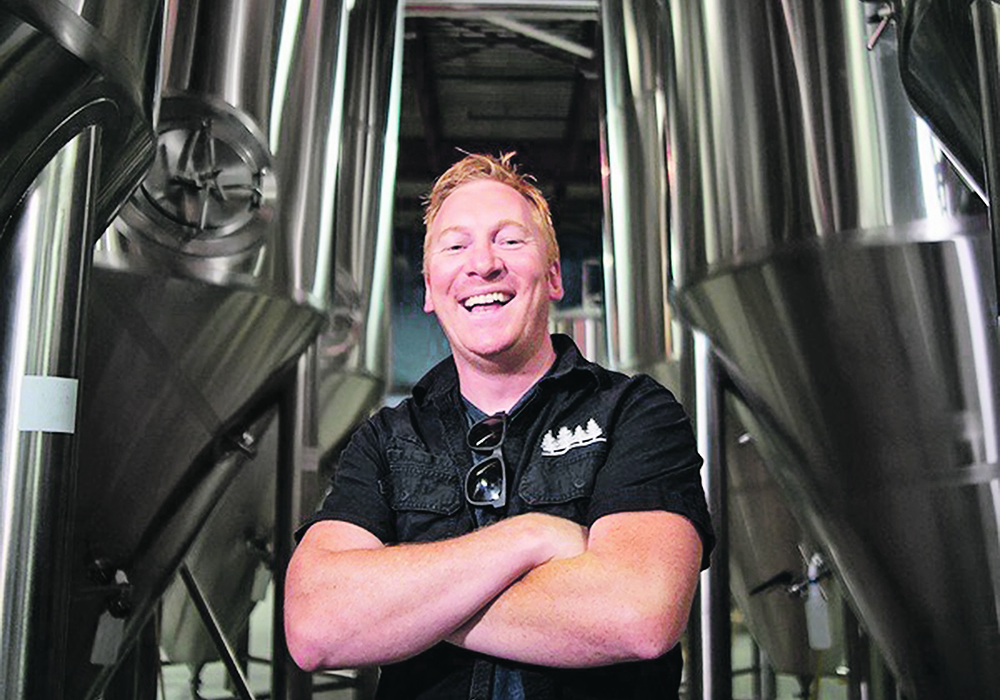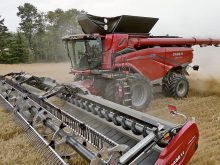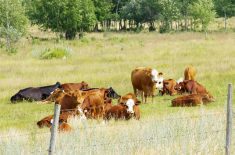Glacier FarmMedia – In 2012, Calgary brewer Graham Sherman was told his plan to start a craft brewery didn’t conform to Alberta’s liquor laws. The province’s legal framework wasn’t friendly to small-scale producers. Brewery-owner hopefuls had to be able to produce 500,000 litres of beer a year if they wanted a licence. Sherman didn’t have that amount.
So, he got the law changed.
Today, his company, Tool Shed Brewing, is consistently named among Calgary’s top breweries and can produce more than two million litres of beer a year.
Read Also

Environmental farm group has Ottawa’s attention
In 2021, Farmers for Climate Solutions published a report on how Canada should reduce emissions from agriculture. Not long after, the federal government implemented most of the recommendations in the report.
“It’s tough because you get to self-doubt. You get imposter syndrome,” Sherman told the audience at Manitoba Ag Days in January. “I’m just some random guy. If nobody could change those laws up until now, why would I be the guy to do it?”
Sherman traces the history of Tool Shed Brewing to his days as a communications tech adviser to the military in Afghanistan from 2007 to 2010. He lived in Afghanistan on and off during that period. During times he was home in Canada, he and his friend, Jeff Orr, who he worked with in the Middle East, would focus on their hobbies. The two were foodies; those hobbies included gourmet coffee, barbecuing meat and brewing beer.
There was nothing casual about their interest. Sherman once had a commercial coffee roaster shipped from Italy that required him to change parts of his electrical system. Even then, he said, it couldn’t be on while the washer or dryer were running. The set up was “ridiculously geeky,” he said.
His barbecue got the same attention.
“My barbecue actually has a probe in the ambient air and in the meat and I designed this algorithm that looks at the differential of those two set points and knows exactly, based on the current environment, when the ribs will be ready. And it’ll send you a tweet.
“There’s an infrared camera so you can see the ribs cooking and there’s even a little fan that blows on the charcoal and keeps the temperature within a perfect half-degree of temperature control.”
In this case, though, his obsession was also the seed of a business and a successful stint in the world of competitive cooking. His barbecue brand, Notorious P.I.G., eventually took him to the World Food Championships, where one of his dishes brought home a gold medal.
“And we actually qualified again for this year.”
The brewing company got its name from where the first drops of home-brewed beer were produced — an eight-by-15-foot tool shed in Sherman’s backyard.
“The biggest thing that I noticed was that all the hobbies that I was getting into had a common theme: bringing people together,” he said. “And when you start making beer, wow, that really brings people together.”
There was also something cathartic about brewing beer with his buddy, Sherman recalled. The pair had shared several harrowing moments while working in Afghanistan, and found it therapeutic to connect with someone who had similar experiences.
“We had a lot of really close calls,” he said, recalling the first time he heard rockets fired into his camp. “Eventually everyone comes to this realization that, if it’s my time, it’s my time,” he said. “Then you can sleep through the rockets. That’s a crazy thing to get used to.”
His family also had ties to the brewing industry. Sherman’s younger brother is a professional brew master in Australia, and Sherman called him for advice when he set his sights on his tool shed brewery.
“No way, I’m not helping you with this,” was his sibling’s response. “You’re going to get divorced over this.”
In an attempt to dissuade him, his brother described a litany of equipment he’d need and the endless work required.
“I think he was trying to talk me out of it, but I was loving everything that I was hearing,” said Sherman.
His brother eventually offered some tips, and Sherman’s home brew operation got up and running. As with his coffee and barbecue efforts, the response from tasters was excellent.
“At one point, I said to my buddy, ‘this is the best thing ever,’” said Sherman. “People are coming from all around to spend this great time together. I think maybe we figured out the secret of life.
“I know it sounds over the top,” he later added. “But passion goes into creating something with your hands, and when people try it and they lose their minds, there’s nothing better on earth.”
Emboldened by positive feedback on his beer, Sherman quit his job and decided to make brewing his full-time vocation. That was the same point he ran head first into Alberta’s liquor regulations.
The Alberta Liquor and Gaming Commission (ALGC) informed him of the capacity requirements, and didn’t seem interested in changing the status quo. For Sherman, that response was infuriating. He compared it to arguing with his kids.
“All the greatest breweries around the world come to Canada trying to get their hands on this barley — Sierra Nevada, New Belgium, Oskar Blues, and even as far away as Sapporo in Japan.
“In fact, from my house, I can look out the window and see this beautiful tract of land with combines rolling up and down it. It’s one of the best barley operations in the world. I can see those guys pull that barley off the field from my house, and I can’t brew with it in the city that I live in. It’s madness.”
He recalled coming home after hearing the news from the ALGC. He was in a serious financial conundrum. He had quit his job, and his next mortgage payment was due in a few days. Doubt began to sink in. Maybe his brother was right.
But defeatism wasn’t going to pay the bills, and Sherman was determined to make it work. Part of that was getting the ball rolling to change the law.
“Ever try to change a provincial law? It does not happen before your next mortgage payment comes due, that I can tell you,” he said.
In the short term, Sherman found a workaround, thanks to more open rules in neighbouring British Columbia. He changed his business plan and applied for an importer’s license rather than a brewer’s license, dodging the capacity limit that had run him afoul of the ALGC.
“The moment I got that licence, I grabbed all this beautiful barley and drove across the border to British Columbia. I went to a brewery just outside Vancouver that let me brew my beer in their facility.”
Sherman than used his importers licence to bring his own beer back to Alberta. He put 660,000 kilometres on his Toyota pick-up truck driving between Calgary and Vancouver in the following months. When he wasn’t stuck at the wheel, he was imploring the ALGC to change its ways.
“It’s insane, but I think the nice thing was it was perfectly insane,” said Sherman. “It wasn’t me saying, ‘do you realize what I would have to do?’ It was me saying, ‘Look what I’m doing.’”
He turned to every bit of documentary support he could find to rationalize a regulation change. One report from the Economic Development Board of Canada said that every dollar spent on local craft beer returned $1.16 to the local economy.
“And of course, it does,” Sherman said. “It supports the malt house, the truckers, the farmers and the brewers.”
He was backed by arguments from the Alberta Small Brewers Association, which had been arguing for the change for years.
After months of inconvenience, interprovincial travel and haranguing the ALGC, his efforts paid off. The commission changed regulations in 2013. Sherman was allowed to do business in his own province.
“They sent out a tweet that day that said, ‘congratulations Tool Shed, no more minimum brew requirement,”’ said Sherman.
Since then, the number of Alberta local craft breweries has risen to 187 from 12 in 2013.
“Everyone is using local barley, and everyone is supporting the farmers,” Sherman said. “It was a tremendous win for all of us.”
And, quite removed from the small structure in his backyard, Tool Shed Brewing is now housed in a 50,000-sq.-foot building in Calgary with a capacity quadrupling the ALGC’s previous minimum requirement. It has racked up top results at the Alberta Beer Awards and products are available across the country. The customer base is growing and its facility is becoming a destination in Calgary.
“We’ve always had a tap room here, but one of the other things that we were able to change in Alberta is that we’re the first brewery in Alberta where the tasting room in the back is right on the brewing floor,” Sherman said. “So the tanks are right there, and it’s kind of steamy, loud and obnoxious, but you can smell the hops, you can see the steam, and you can watch the beer being brewed as you’re having a beer and some barbecue.”
That’s right. He’s managed to shoehorn his barbecue brand into his facility. The restaurant, also called Notorious P.I.G., was added during the pandemic and today prides itself on serving Alberta-sourced pork, beef, chicken sausages and just about everything you can grill.
“We even have some vegetables,” joked Sherman.
















